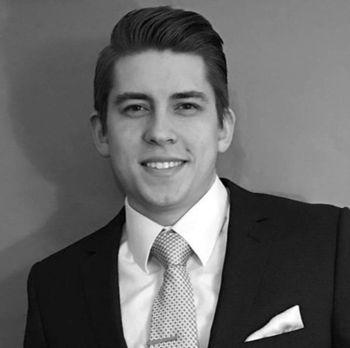Prof: 'Racist hate speech' causes cigarette smoking
A Northwestern University professor argued Wednesday that "hate speech" should be a form of expression that is subject to legal limitation.
In an op-ed for The Los Angeles Times, sociology professor Laura Beth Nielsen contends that “members of traditionally marginalized groups suffer” when Americans are granted the freedom “to be hateful.”
[RELATED: Volokh demolishes Feinstein in campus free speech hearing]
“Perhaps it’s nonsense to characterize the nature of the harm as nothing more than an emotional scratch,” Nielsen postulates. “That’s a reflection of the deep inequalities in our society, and one that demonstrates a profound misunderstanding of how hate speech affects its targets.”
The professor maintains that free speech is already a limited right, mentioning numerous restrictions on panhandling, protesting veteran’s funerals, advertising, inciting lawless action, and more.
“So soldiers’ families, shoppers, and workers are protected from troubling speech," she deduces. "People of color, women walking down public streets or just living in their dorm on a college campus are not."
To support her argument, Nielsen cites "empirical data" suggesting that “frequent verbal harassment can lead to various negative consequences.” According to the professor, the negative consequences of “racist hate speech” include high blood pressure, cigarette smoking, depression, anxiety and post-traumatic stress disorder.
“Instead of characterizing racist and sexist hate speech as ‘just speech,’ courts and legislatures need to account for this research and, perhaps, allow the restriction of hate speech as do all of the other economically advanced democracies in the world,” she argues.
While Nielsen briefly considers basic objections that could be raised by “free-speech absolutists,” she reiterated her view that freedom of speech is already “far from absolute.”
[RELATED: UMich paper defends silencing speakers who 'outrage' students]
“But these free-speech absolutists must at least acknowledge two facts," she declares. "First, the right to speak already is far from absolute. Second, they are asking disadvantaged members of our society to shoulder a heavy burden with serious consequences. Because we are 'free' to be hateful, members of traditionally marginalized groups suffer."
Earlier this week, the U.S. Supreme Court unanimously ruled that the government may not prohibit hate speech in a case involving an all-Asian American rock band called The Slants, whose name is also a derogatory term for Asians.
Justice Samuel Alito, writing an opinion for four justices, argued that the ability of the government to restrict offensive speech “strikes at the heart of the First Amendment."
“Speech that demeans on the basis of race, ethnicity, gender, religion, age, disability, or any other similar ground is hateful," Alito acknowledged, "but the proudest boast of our free speech jurisprudence is that we protect the freedom to express ‘the thought that we hate.’”
[RELATED: Evergreen students: 'F*** free speech' that 'validates' hate]
In an interview with Campus Reform, Nielsen said that her main criticism of the legal system is its failure to “recognize some harms even as they recognize others," adding that "those that are recognized tend to be the ones endured by those who already enjoy privilege in our society.”
Zachary Greenberg, Justice Robert H. Jackson Legal Fellow at the Foundation for Individual Rights in Education (FIRE), agreed that freedom of speech is not "absolute," but warned that there is no clear definition of the term “hate speech.”
“You can ask a hundred people what hate speech is and you get a thousand different answers,” Greenberg told Campus Reform, later adding that “there is really no ending point” once you start punishing offensive expression.
“When you have these very vague, ambiguous terms for punishing speech, you end up suppressing and punishing a wide variety of speech, much more speech than what is intended to be punished to begin with,” he pointed out.
Greenberg also noted that certain “buffer zones” that restrict protests around funerals have been struck down by the Supreme Court, and maintained that even they are not necessarily a “permissible restriction” under the constitutional law.
Follow the author of this article on Twitter: @nikvofficial

